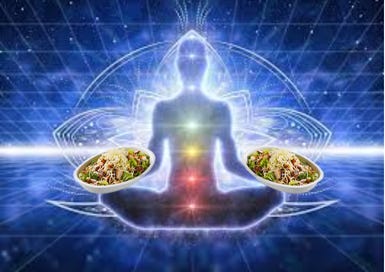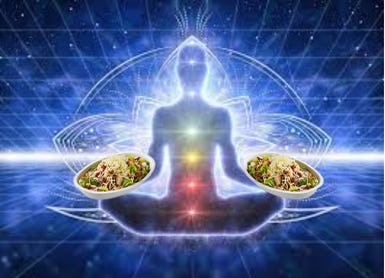When you think of the act of cooking what words come to mind?
A duty?
An avenue of personal expression?
Care for others and yourself?
Cooking tends to get framed as either a chore or a creative outlet. The home cook is feeding a brigade, while the Michelin-starred veteran is serving out their love letter to cuisine every night. But I think cooking is something else entirely.
What if cooking is a virtuous act that makes us better people? It makes us better because of the times we cook when we don’t want to. It makes us better to make a dish out of what we have rather than having all the “right” ingredients. It makes us better because we can mess it up, and learn for the next time.
Cooking is a virtue, and not in the modern moralizing, self-congratulatory sense. I mean it more in the ancient sense: a habit of our character. A way of interacting with the world that shapes how and who we are.
what virtue really means
I’m not trying to be Ryan Holiday, but…
…to the Stoics, virtue wasn’t just one aspect of a good life. It was the good life. It meant living in accordance with nature and reason. It meant cultivating qualities like courage, temperance, justice, and wisdom in everything you did, including how you dressed, ate, worked, and spoke.
Modern psychology, centuries later, arrives at something similar. Virtue is not some lofty ideal. It’s a pattern of character, reinforced over time through practice. Gratitude, perseverance, curiosity are not innate traits. They are learned by doing.
Cooking is one of the few remaining parts of modern life where you can train these smaller traits daily. Not by reading about them or “working on yourself,” but simply by showing up, chopping the onions, and paying attention to your taste and flavor cues. Cooking isn’t just a means to an end, but a practice that builds virtues over time.
small virtues of cooking
To me, cooking has given me a greater sense of smaller virtues that carry over into all parts of my life. Discipline in the form of delayed gratification is the first that comes to mind. In a world of short clips and same-day shipping, cooking erases any immediacy that we’ve accustomed ourselves to. It takes time to chop, brown, simmer, taste and adjust recipes to create an experience you can’t get from a microwaved dinner. By adjusting, we are being present and engaging the senses. Now I may listen to a podcast or music while I’m cooking at times, but I’ve chosen more often to just listen to the bubbles pop on the surface of a stew or the shriek of raw egg white in a pan.
In fact, delayed gratification starts the cascade of the virtues that cooking builds. Cooking forces responsibility by thinking ahead.
Do I have the ingredients? Did I start thawing out my stock?
What do I do with these chicken bones instead of just throwing them out?
Responsibility allows you to think of what you might buy less of or more of. It starts to generate curiosity when you have been less responsible and have run out of or forgot to purchase more of an ingredient. How might I pull off this Ottolenghi recipe without Turkish sumac? Oddly, I have a lot of powdered black lime leftover, though it has more salt so I’ll need to adjust some things on the fly.
And finding fixes to holes in your recipe creates temperance: know when there’s enough. In this case, how much black lime gets you to the right point, but isn’t too much. But on a more macro level, how much food is too much and what do I do with the remainder? How do I plan ahead for better amounts in the future?
Cooking also has such a potential to be a selfless act of care. I’ve many a time made extra eggs for family running late out the door without being asked, or put together a coffee. I’ve also benefited from many other people also wanting to take care of me in the same way or taking on the responsibility of feeding me. The act is the practice of love, one of the best virtues.
the modern disconnect
The way we connect with food today can be oddly abstract: delivery apps, ghost kitchens, or, at best, meal prep kits. I remember trying free trials of HelloFresh and Blue Apron, excited by the idea of having everything mise en place. They promised connection: a home-cooked meal made easier, a return to the kitchen.
But it didn’t feel that way. It felt more like I was delivered a retail-sized kit of chain-restaurant sauces and pre-portioned vegetables. The packaging was endless. The sauces leaned sugary. And the portions? I'm not sure what human would call those two servings.
To be fair, the mission of meal kits is virtuous. They want to bring people back to the table. But something essential gets lost in translation. Connection through food doesn’t start at a shrink-wrapped box. It starts at ideation: what do you feel like eating? It grows through creativity: what can we make with what we have? And it deepens through problem solving: should the onions be diced, sliced, or brunoised?
Recently, I heard Travis Kalanick (the former Uber Founder/CEO) of CloudKitchens talking about the future of food. His company is building meal-prep robots housed outside of traditional restaurant zoning. Humans prep the inputs; robots assemble customizable bowls with machine precision. You could fine-tune your dietary targets down to the gram. It’s a vision of efficiency: no wasted time, just optimal nutrition for your needs and goals.
In one sense, it sounds like salvation from the burden of cooking. But it begs a deeper question: what kind of life are we saving ourselves for?
If a personalized nutrition bowl frees up time for another meeting or another high-effort workout, are we really reducing labor or just trading one kind of labor for another, higher-paid one?
More than that, we’ve settled into a single, narrow interaction with food: eating. Cooking has been outsourced, stripped away from the process entirely. But when we stop cooking, we miss the smells and shapes of fresh produce. We forget the texture of leafy greens in our hands, or how a tomato feels at its peak. We lose track of seasonality, not because it’s gone, but because we’ve stopped engaging with it.
Cooking brings us back to those signals and is a moment to step off the dopamine treadmill of life. It reintroduces food as something tactile and temporal, not just nutritional. It reminds us that flavor has a time and place.That nourishment isn’t just about macros, it’s regaining our attention. To get your eyes off pixels. To think with your hands. It’s not always efficient and it doesn’t always come in bowl form, but a break is nourishing as much as the meal.
a way back to ourselves
Cooking isn’t just a means to an end. It’s not just about feeding ourselves efficiently - it’s a way of staying in touch. With our bodies, our environments, our habits, and even our values.
In a culture that prizes speed and optimization, cooking offers something slower, quieter, and, oftentimes, more rewarding. It doesn’t demand perfection. It asks for presence: the smell of garlic hitting oil, the sweetness of the first August tomato, the way a meal changes when you care about it.
None of this has to be elaborate. It can be a simple lunch. A half-hour dinner. A choice to roast instead of reheat. What matters is the act of returning. Of saying: this is worth my time.
Because when you cook for yourself, you’re not just making food. You’re practicing something that builds over time: patience, discernment, attention, care. Call it character. Call it self-respect. Call it virtue. Whatever you name it, it shapes you.
And that, simply, is the point.




